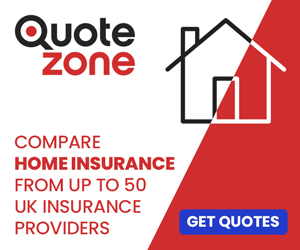
How to choose energy efficient replacement appliances
Key Takeaways
- Understand energy ratings to assess appliance efficiency.
- Consider the size and capacity based on your household needs.
- Evaluate the long-term savings versus upfront costs.
- Research the maintenance and durability of appliances.
- Look for features that maximize energy efficiency.
When it comes to improving energy efficiency in your home, selecting the right replacement appliances is crucial. Not only can they help you save money on your utility bills, but they also contribute to a healthier planet. In this article, we will explore key factors to consider when choosing energy-efficient appliances without compromising performance or quality. We'll equip you with the necessary tools and knowledge to make informed decisions that best suit your household.
Understanding energy ratings
The first step in your appliance journey is to familiarize yourself with energy ratings. Energy ratings are provided by government agencies and can help you identify how much energy an appliance uses. Here are the most common ratings:
| Rating | Description |
|---|---|
| Energy Star | Appliances with this label meet strict efficiency guidelines set by the EPA. |
| MEPS (Minimum Energy Performance Standards) | Mandatory energy performance standards various regions implement. |
| SEER (Seasonal Energy Efficiency Ratio) | Measures the efficiency of air conditioning systems; higher values indicate better efficiency. |
Size and capacity matters
Choosing the right size and capacity for your appliance ensures it meets your household needs without excess energy consumption. Consider the following factors:
- Family size: Larger families may require bigger appliances, while smaller households can opt for compact models.
- Usage frequency: If you frequently use a specific appliance, it's worth investing in one that offers higher efficiency.
- Kitchen layout: Measure your space carefully to ensure that the appliance fits well in your kitchen.
Evaluating long-term savings
While energy-efficient appliances might involve higher upfront costs, understanding long-term savings can help justify your investment. Compare potential savings using the following factors:
| Appliance Type | Average Initial Cost | Annual Energy Cost | Estimated Lifespan | Estimated Total Cost Over Lifespan |
|---|---|---|---|---|
| Refrigerator | $1,200 | $150 | 15 years | $3,300 |
| Washing Machine | $800 | $100 | 10 years | $1,800 |
| Dishwasher | $600 | $75 | 10 years | $1,200 |
Researching maintenance and durability
Investing in an energy-efficient appliance also means considering its maintenance and durability. Look for customer reviews, warranty offerings, and service history to gauge the reliability of the appliance you are considering. Checking out customer satisfaction rates is essential for making informed choices. For more tips on selecting the right appliances, you can visit our [Buying Guides](/blog/buying-guides).
Features that maximize energy efficiency
When selecting replacement appliances, look for features designed to enhance energy efficiency:
- Smart technology: Many modern appliances offer smart technology that optimizes energy use, such as scheduling features and energy usage tracking.
- Variable speed settings: Appliances with variable speed settings can adjust their power consumption based on workload.
- Heat recovery systems: Some appliances, like dishwashers, recycle heat from the wash cycle to preheat water in future cycles.
Where to buy energy-efficient appliances
Finding a reliable outlet to purchase energy-efficient appliances is essential. Here are some tips:
- Check local appliance retailers for special promotions on energy-efficient models.
- Shop online for early sales and discounts, ensuring you choose companies with solid return policies.
- Consider refurbished or certified used appliances for more affordable eco-friendly options.
Additionally, consider reading up on the latest trends in the appliance industry by visiting our [News and Trends](/blog/news-and-trends) section.
Final thoughts
Choosing energy-efficient replacement appliances is a significant step toward creating a more sustainable home while also saving you money. By understanding energy ratings, evaluating your household's needs, and considering the long-term benefits, you can select appliances that effectively meet your needs without compromising on efficiency. Don't forget to explore our [Tips and How-to Articles](/blog/tips-and-how-to-articles) for more insights on optimizing your appliances' performance.
Pros
- Reduction in energy bills.
- Environmental benefits from reduced energy consumption.
- Advanced features that enhance convenience.
- Long-term savings that outweigh the initial investment.
Cons
- Higher initial costs compared to conventional appliances.
- Limited availability of some models in certain regions.
- Not all appliances boast the latest technology.
